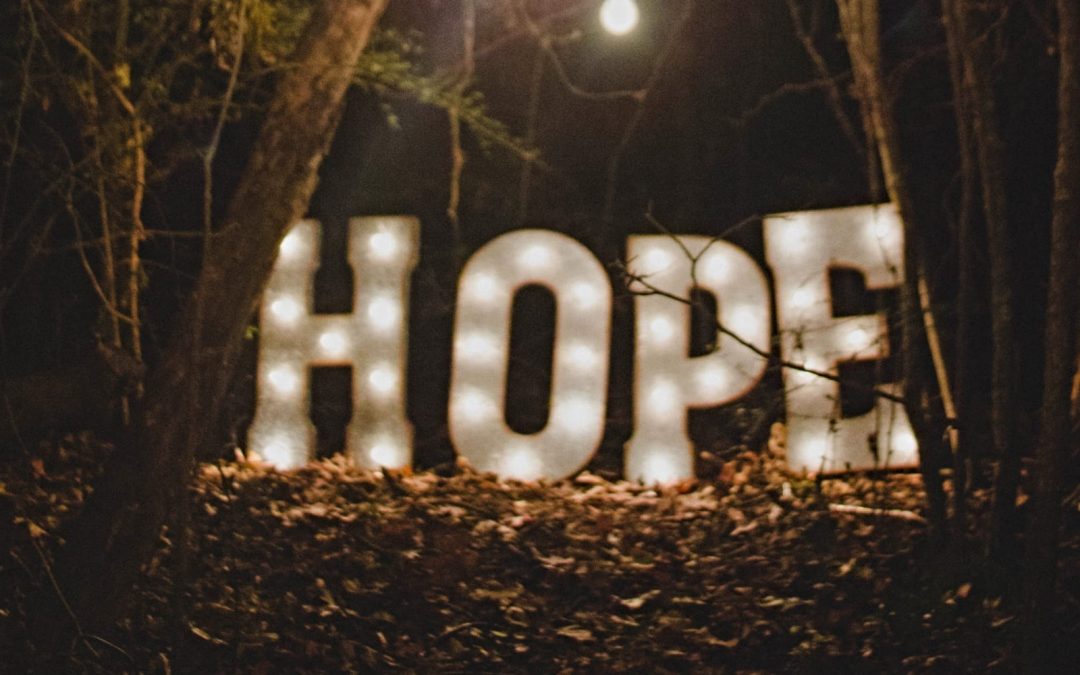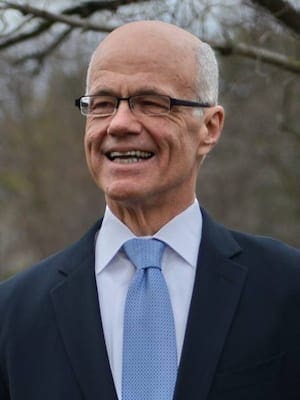My dad was a salesman, a good one. On days when he was to pitch a big sale, he’d get up early, polish his shoes to a spit-shine and review the proposal he’d soon make.
As he left the house, he’d sing at the top of his lungs these familiar words from “Oklahoma,” “Oh, what a beautiful morning. Oh what a beautiful day. I’ve got a beautiful feeling everything’s going my way.”
Knowledgeable, confident, sporting glossy shoes, with a spring in his step and a bright smile on his face, he’d go to make his pitch. More often than not, he’d make the sale too.
My father was an optimist who believed in the powers of a sunny disposition, a can-do attitude and positive thinking.
I didn’t pick up my dad’s optimism, and it’s my loss. I’m more likely to see problems than possibilities, difficulties more than solutions. I expect “no” to be the answer, rather than “yes.”
To gloss on the clichés: my glass is half-empty; I see the cloud in every silver lining; and when life gives me lemons, I tend to let them go bad before I do anything at all with them.
My dad’s optimism was better than my pessimism, but hope is best of all.
Optimism and pessimism are human qualities; they are the result of what we think, feel, do and fail to do.
Hope is the divine promise of a future wholeness and joyfulness, which transforms the present. It’s a gift of God, which we receive and with which we cooperate, but we can’t – and don’t have to – generate it.
Most years, as the First Sunday of Advent – the Sunday of Hope – nears, I glance again at Jurgen Moltmann’s “Theology of Hope,” in which there is this bold claim: “The believer is not set at the high noon of life, but at the dawn of a new day, at the point where night and day, things passing and things to come, grapple with each other.”
We don’t live in the optimist’s unclouded midday sun, nor do we live in the pessimist’s murky midnight. We live on the cusp of dawn, where light and dark, beginnings and endings, life and death wrestle with each other.
The Christian story is about contested and difficult hope. It’s the announcement that the Messiah is coming, followed by the long Advent wait for the Messiah’s appearance.
It’s also the declaration that the Messiah has come, followed by the difficult questions about why, if that is true, there remains so much injustice, pain and despair.
Christian hope is the good news that the tomb is a womb – that there is birth after death.
Just as there would be no celebration of Christmas if there were no Easter, Christian hope depends on the resurrection, and there is no resurrection apart from the cross.
Authentic hope is always paradoxical: It’s embodied by the risen but eternally scarred Jesus.
During the Advent season, we renew our trust in the audacious promise at the heart of all hope; it’s the promise the angel made to young Mary, stunned by the announcement that she was to be the mother of God’s child: “Nothing will be impossible with God.”
When violence and oppression seem to rule the day, God is, in fact, doing the unexpected – giving us Jesus – with the unnoticed, like Mary. Freedom is being born, and reconciliation is coming to life.
God does what we cannot do. When today is barren and tomorrow is bleak, God draws near with surprising grace to bring new life and fresh beauty.
God fills the eerie silence of hopelessness with the music of angels and tells the terrified that there is no reason for fear.
It’s ironic and good that I’m reflecting on hope just now. After an almost two-year respite, cancer has made a resurgence in my body.
On Thanksgiving week, I spent two days at an infusion center, receiving chemotherapy. I’ll be there every week through Advent and beyond.
As I rolled up my shirt sleeve for the nurse to insert the I.V. needle in my arm, I leaned into the promise of hope expressed in the words Juliana of Norwich heard Jesus say to her in an experience of severe illness: “I may make all things well, and I can make all things well, and I shall make all things well, and I will make all things well; and you will see yourself that every kind of thing will be well.”
The chemo might not work, and I may not be cured; but God is at work, and I will be healed.
Living or dying, all shall be well, because nothing is impossible with God.
Editor’s note: This article is the first in an Advent 2018 series focused on the traditional themes of hope, peace, joy and love. A reflection on peace will appear next week.


